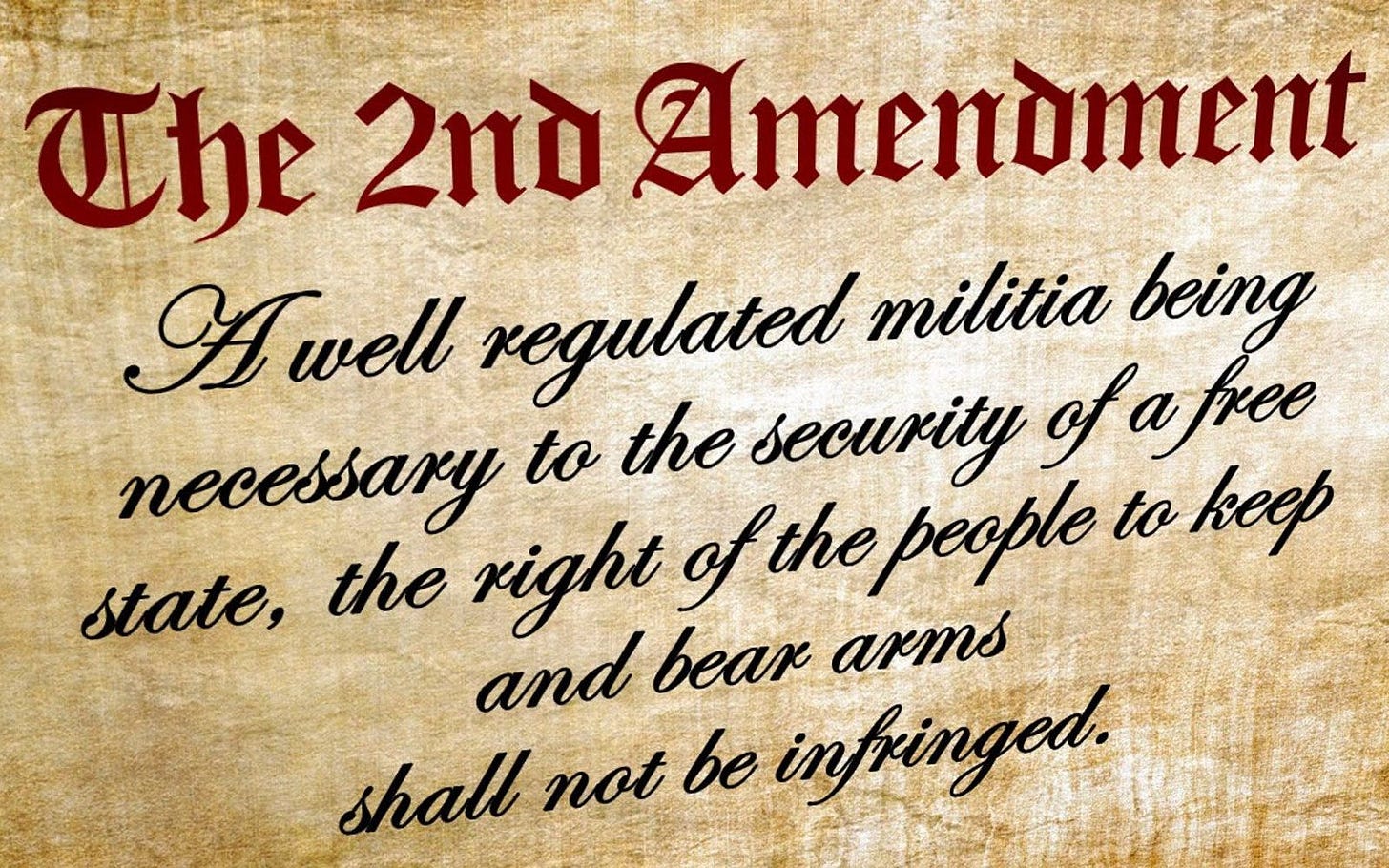The Bill of Rights, the first ten amendments to the Constitution, was enacted almost concurrently with the ratification of the Constitution itself. The first eight amendments detail specific protections of individual Americans' (aka "The People") liberties from government infringement, and set rules and limits on what government can do in the cases of individuals committing crimes. The ninth says 'any right or liberty we didn't list is also protected,' and the tenth says 'if the Constitution doesn't say the Feds can do X, then X is reserved for the states or The People.’
The entirety of the Bill of Rights is a "thou shalt not..." admonition to the newly-created Federal Government.
Except, if we are to believe people who don't like other people owning guns, for the Second Amendment. Despite it saying rather plainly that "the right of the people to keep and bear Arms, shall not be infringed."
Some among that crowd use the argument that even rights like speech are not absolute, therefore they can restrict gun ownership. This ignores the premise that such restrictions can only be emplaced when one's exercise of a right infringes on another person's rights, as in "my right to swing my fist ends at the tip of your nose." That's why slander, libel, intimidation, and incitement can be restricted or punished, but merely disagreeable speech cannot.
Others argue that the explanatory clause of the Second Amendment, i.e. "A well regulated Militia, being necessary to the security of a free State..." They tell us that this means that the government, not The People, gets to have the guns, because "militia" in their minds means "army." Or, because citizen militias have been replaced by standing armies.
Grammatically and historically, they are incorrect, no matter how much ink retconners and apologists have spilled trying to deny the obvious. Since neither grammar nor history are in vogue nowadays, some have taken to writing analogous sentences to illustrate the error of the Militia argument.
A sampling, culled from the Internet:
A well-stocked library, being necessary to the education of a free State, the right of the people to keep and read Books, shall not be infringed.
Who gets to own the books, the library or The People?
Keep reading with a 7-day free trial
Subscribe to The Roots of Liberty to keep reading this post and get 7 days of free access to the full post archives.




